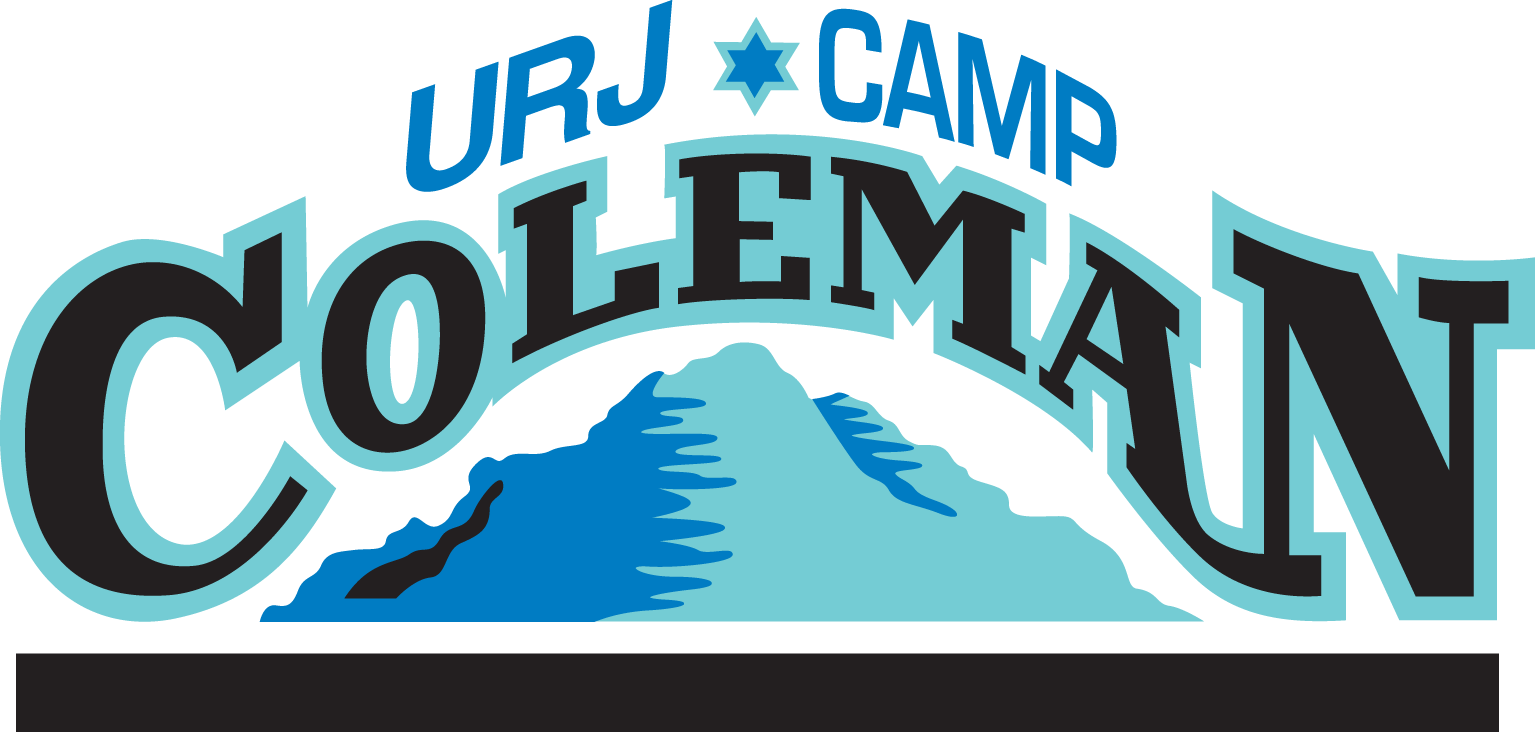By Rabbi Ana Bonnheim
As we looked for “Camp Coleman Drive,” my older son, Micah, who is six, wondered which came first, the road or the camp. We resolved to investigate once we arrived.
This was the first time my family—my husband Asher and our sons, Micah and Jonas—visited URJ Camp Coleman, and the drive there felt different than what we thought of as our typical drive to camp. It didn’t yet have the same landmarks, the same highway exit numbers to watch for, the same excitement to see old friends.
We moved from Dallas, TX to Charlotte, NC two years ago, and, in that move, I left my job as the associate director of URJ Greene Family Camp. Camp—and GFC specifically—was pivotal to almost every aspect of our family’s life. I not only worked at Greene, but it was a second home to our kids (who spent almost 20% of their lives there), and it was also where my husband and I met, nearly 20 years ago. While we were excited to join the Coleman community, it felt strange to now be camp newcomers. Our visit wasn’t just supposed to be a tour of a new camp—it was our first encounter with what we hoped would be another camp home.
And unsurprisingly, we immediately learned how valuable fresh eyes are. I wish I’d thought to go through the arrival process while working at Greene, pretending to be a brand new camper or faculty member. Who said hello? How did we know where to go or what to do? Within minutes of arriving at Coleman, we were greeted by the program director, who spent the better part of the next two hours showing us around and getting us settled. We felt seen, cared for, and warmly drawn into the embrace of camp.
Our boys felt it too. At ages 6 and 2, they got to be part of Yeladim, the youngest unit, created specifically for staff and faculty kids who are younger than camp age. The Yeladim staff welcomed Micah and Jonas with hugs and a quick entry into a fun and busy schedule. I had worried that being at a new camp would make our kids miss their old camp home, but it turns out that there was no need for concern. Some of the most precious parts of camp—running around freely, making fast friends by just saying hi and starting to play or by dancing together during song session, being outside, walking everywhere—are not camp-specific.
It took going to a new camp for the first time to fall in love again with the feeling, the ruach (spirit), of our Movement’s camps. We all felt that love so tangibly in the kindness of machonikim (counselors-in-training) playing chase or to offering a high five to the kids, in the smiles of the staff giving us directions or showing us the shortcuts around Lake Shalom, in our introduction to Coleman’s legendary Shabbat apple brown betty, and in the sacred moments when we all swayed together to the music during Shabbat services overlooking the lake as the sun sank below the distant hills.
Of course, these moments were specific to Coleman and to the culture that Coleman’s leadership has intentionally created. But they were also reminders of the power of Jewish camp writ-large. This is the magic that happens when Jewish teens, college students, and early twenty-somethings share their passions, stories, and time with their campers; the magic sparked when so many Jewish kids used to feeling like one of the only Jewish kids at school get to dance and sing the Sh’ma together with pride; the magic of feeling independent, like you own a piece of camp and your parents just don’t get it (even when they do); the magic of feeling powerful and brave enough to create new Jewish traditions or to change existing ones; the magic of that first run down a slip-n-slide; the magical mix of autonomy, community, and love that makes camp friendships so enduring. This is Coleman, and it’s also URJ camping. I needed fresh eyes to remember the universality of the Jewish beauty of camp. We all left, after too short of a visit, with a that mix of buzzing energy and pure exhaustion that’s familiar to anyone who has ever wholeheartedly jumped into camp.
But before we left, we remembered to answer to Micah’s first question: he went straight to Bobby Harris, Coleman’s director, to find out that indeed, the camp came first. And if we let it, camp can be the beginning of so many new adventures, so much new growth, so much community, and so much pure fun.
